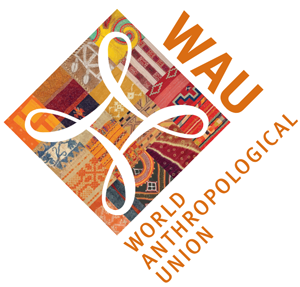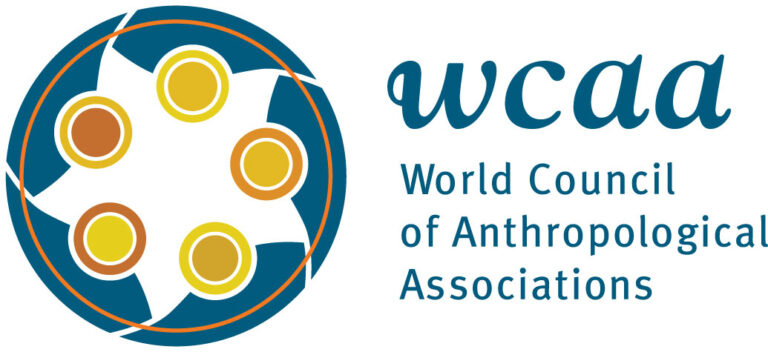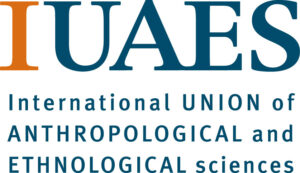「ムスリム女性」のステレオタイプに文化人類学によって抗うということ
嶺崎寛子(愛知教育大学)
「ムスリム女性」にどんなイメージを我々は持っているだろうか。
言い換えれば、私たちが接する報道やTV、ネットなどの多種多様な情報源は、ムスリムやイスラームをどのように表象し、人々の抱くイスラーム・イメージはそれによってどのように形成されているのだろうか。
ヴェールを被る/被らされている?
女性差別的な宗教を信じる、遅れた世界の受け身な女たち? 家父長制による抑圧?
イスラーム世界の女性は現地の男性に虐げられている、という言説は日本でも人口に膾炙している。このような「まなざし」はジェンダー・オリエンタリズムといわれる。イスラームとジェンダーの研究者である著者は、本当にうんざりする位、この手のまなざしに日々出会うし、日々それに煩わされてもいる。大塚和夫や片倉もとこら、文化(社会)人類学の優れた先達の仕事があってもなお、このジェンダー・オリエンタリズムに地道に向き合わざるを得ない状況は変わっていない。このまなざしは、ムスリム女性の実態を知るうえで明らかな障害である。そもそも「ムスリム女性」というのが、時代も地域も無視した超歴史的・超地域的なありえない概念で、この言葉を使うときはいつも、ちょっとめまいがするような気分になる。しかしあえて問う。
そもそも、ムスリム女性とはどんな人たちなのだろうか。彼女たちにとって、ムスリムであることはどんな意味を持つのだろうか。
主体的に女性でありかつムスリムであることは、当事者にとってどういうことか。この問に答えるために、拙著『イスラーム復興とジェンダー――現代エジプト社会を生きる女性たち』(2015年、昭和堂)は書かれた。エジプトでエジプト人家庭に居候させてもらい、女性説教師が主催する女性のためのイスラームの勉強会に出たり、エジプト人女性がウラマー(イスラーム法学者)に電話で寄せた悩み相談に耳を傾けた結果、本書ができた。
理論的には、エジプトのムスリム女性達の宗教実践を描くことを通じて、文化人類学、ジェンダー学、宗教学を相互補完的につなぐ理論枠組の構築をめざした。そして彼女らの多様な声をできるだけそのまま拾うよう、我々の理解できる枠組みに彼女達の声を回収、または翻訳してしまわないよう、心がけた。
「私が大学入学資格試験に失敗したのは、ヴェールを被ってなかったからですか?」「ラマダン中にメッカへ小巡礼に行きたいんですが、子供を置いて小巡礼に行ってもいいでしょうか?」(ちなみにこの問にウラマーはYesと答えた。巡礼には行けるときに行ったほうがいいですよ、夫の許可が出ているんならこの好機を逃してはいけません、と。巡礼は母役割よりも優先順位が高いのである)「夫が生活費をくれません」「夫が礼拝しません」「夫が、私に母と出かけちゃダメだって言うんです」。
実に1319本の電話相談を筆者は聞いた。ムスリム女性たちの悩みから、彼女達の日常世界や、エジプトのジェンダー規範が浮かびあがる。男性ウラマーの回答(これをファトワーという。信徒の質問に答えてイスラーム法学者が都度出す法的見解)も併せて読んでほしい。そこに、ムスリム女性たちのたくさんの、そして多様な姿が、きっと見つかるはずだ。得た回答(ファトワー)を「イスラームではこう定めている。ウラマーがこう言っている!」と、お墨付きとして使って家族や夫と交渉する、たくましくしたたかな女性がいる。息子の性的不品行に悩む母がいる。恋に悩む女性も、母の介護を兄弟に押し付けられた女性も、夫と実母の仲が悪いことに悩む女性もいる。
本書では、彼女たちの等身大の姿と、彼女たちの日常に織り込まれるイスラームの姿を描いた。エジプト女性たちの民族誌として、あるいはファトワーの民族誌としても、読んでいただければ幸いである。
実はこの本は、日本語でしか書き得なかった。電話相談を受けるNPO「イスラーム電話」の主宰者は、英語で論文を発表することを禁じた。それは調査を許可するにあたり、たった一つだけ彼がつけた条件だった。彼は、多様で生き生きとした、その分外聞をはばかるような醜聞やDV事例などをも含む質問群が、欧米でジェンダー・オリエンタリズムの文脈で読まれ、あるいは消費され、イスラーム世界の後進性の象徴として利用されることを恐れたのである。中東と日本に植民地被支配・支配の歴史がなく、歴史的・政治的なしがらみがなかったことがこの調査を可能とした。おかげで拙著も世に出られた。
彼の不安には根拠がある。9.11以降の流動化する世界情勢の只中で、欧米と中東という二項対立的な表象がなされ、それが政治的に利用される現実があるからこその、英語出版拒否だった。彼にその決断をせしめたその文脈をも、本当は私は、本の中で論じるべきだったのかもしれない。
当然ながら、英語で発表される成果が人類学の全てではない。豊穣な人類学の地平は日本語によっても拓きうるし、日本語だからこそできることもある。拙著のように、様々な事情から英語にできない、人類学の成果はまだまだ多くあるはずだ。英語を通じて世の中を見るときには不可視化されてしまう、グローバル言語の外にある豊穣な世界。グローバル言語で書かれていないためにアクセスできる人数が限られるという限界はあっても、いや、あるいは限界があるからこそ、その豊穣さは素晴らしく、得がたい。
非グローバル言語で行われる複数形の人類学の、その豊穣な世界を知るための窓を、私たちは様々なやり方で確保する必要がある。そしてこの多言語ページはまさに、そういう成果を言祝ぐためにこそあるのだろう。お互いの言語での人類学の成果を垣間見あうための、ここはささやかな、しかし偉大な窓なのである。その窓に、書く機会をいただけたことを幸いに思う。
なお、2016年の再訪時に、主催者のS氏は英語版の出版を許可してくださった。英語版をいま鋭意準備中である。言語の非対称性、言語やタームの翻訳不可能性、ジェンダー・オリエンタリズム、中東を取り巻く政治状況などに、母語ではない支配的言語で書くという行為を通じて再びどっぷり向き合うことで、どんな課題や未来が見えてくるのだろうか。その先の地平を楽しみに、翻訳作業と向き合っている。
Resist Muslim stereotypes in Japan from a cultural anthropological perspective
Hiroko MINESAKI (Aichi University of Education, Japan)
What kinds of Japanese stereotypes exist of Islam and of Muslim women?
In other words, what kinds of information about Islam and Muslims do people receive via TV programs, news, and the Internet? How does this information influence stereotypes of Islam and Muslims? Are Muslim women forced to wear the hijab? Are they merely passive, believing in an outdated religion that believes in the oppression of women?
Popular Japanese stereotypes, as in other countries, depict Muslim women as oppressed by men. Such a view is often called “gender orientalism.” I am a feminist anthropologist working in the fields of Islam and gender studies, and in the course of my work I have often encountered such a prejudiced gaze.
In actuality, the term “Muslim women” is a construct: all Muslim women are unique and have views and practices that depend on their specific time period, geographic location, and culture. When I use this term to refer to all Muslim women universally, I always feel uncomfortable. Instead, my research attempts to answer the following: What does it mean for a specific individual to be a Muslim woman? How does she try to be a woman, Muslim, and a responsible individual?
My first book, Islamic Revival and Gender: Women who Live in Modern Egyptian Society, is an attempt to answer these questions. My work aims to build bridges between cultural anthropology, gender studies, and religious studies and cultivate a new interdisciplinary area describing Egyptian Muslim women’s religious activities. My book tries to preserve individual women’s voices, and I am careful never to interpret or translate their voices beyond what is necessary for clarity.
In the course of my research, I lived with two Egyptian families for 10 months, attended weekly Islamic lessons held by a women’s preacher, and carried out cultural anthropological fieldwork at a nonprofit organization (NPO) that is Egypt’s first to issue fatwas—the interpretation of Islamic law by muftis (ulamas)—over the phone.
A main part of my research consists of a case study using 2,050 phone consultations regarding fatwa in Egypt in the 2000’s, based on my cultural anthropological fieldwork at the NPO. The size of the data samples was quite large: some 1,319 calls were made, with the cases numbering 2,050; if a caller asked two questions in one call, it was recorded as one call and two cases. These questions and answers give a vivid portrait of the women’s daily lives and their struggles, financial problems, family relations, way of thinking, and gender norms.
The fatwa questions asked taught me much about the lives of Egyptian Muslim women. Questions included: “I failed my baccalaureate exam. Did it happen because I do not wear the veil?” “Can I go to Hajj during Ramadan with my brother while my young teenage children remain at home?” “My husband never gives me money for living expenses. What should I do?” “My husband is not interested in daily prayer and he never prays. What do I do?” and “My husband told me that I cannot go out with my mother. What should I do?” I found that these were tough and strong-minded women using fatwa as religious approval to negotiate with their husbands and families. There was the mother worrying about her son’s sex scandal, the lovesick girl, the woman devoted to caring for her mother because all her brothers fled from their financial and mental responsibilities, the woman caught between her husband and her mother, and more.
In my book, I try to describe these real women and how Islam is woven into their daily lives. This book can be read both as an ethnography of fatwa and as an ethnography of Muslim women in Egypt.
I had no choice but to publish this book in Japanese. The man in charge of the NPO where I conducted fieldwork only allowed me to conduct my research on the condition that I did not publish any of my findings in English. He was afraid that my research would be misused as an illustration of the oppression of women in the Middle East and the Islamic world. Japan has never had an imperial presence in the Middle East, and as such there are no misunderstandings or negative feelings between the two geographic regions. I was able to conduct my research in the spirit of friendship and cooperation.
Since 9/11, our world has become more unstable. The dichotomy between the Middle East and the West has been reconstructed and exploited in the context of international politics. Former American president George W. Bush’s slogan “Save Muslim women from their own men,” used to justify military intervention in Afghanistan, is proof of this. It was under these circumstances that the head of the NGO asked me not to publish in English.
Needless to say, English publications are just a part of the remarkable findings of cultural anthropology. The rich field of cultural anthropology exists in many other languages, including Japanese. I believe that there is something to be said for writing and publishing scholarly research in our mother tongue. There are many remarkable works not written in English that are known only to researchers who speak a specific language. Even if these works are not easily accessible, they are never useless.
This is why it is a great honor for me to write an essay for this site. Multilingual pages like this one celebrate the importance of the many multilingual works on cultural anthropology. To paraphrase the famous astronaut, Neil Armstrong, “That’s one small window for individuals, one giant visibility for multiple cultural anthropology.”
In 2016, I visited the NGO where I worked for the first time in 8 years and met with the head of the organization. This time, he finally allowed me to publish my book in English, and for the past year I have been preparing an English version. I hope that I can deliver my book to English readers in the near future.



